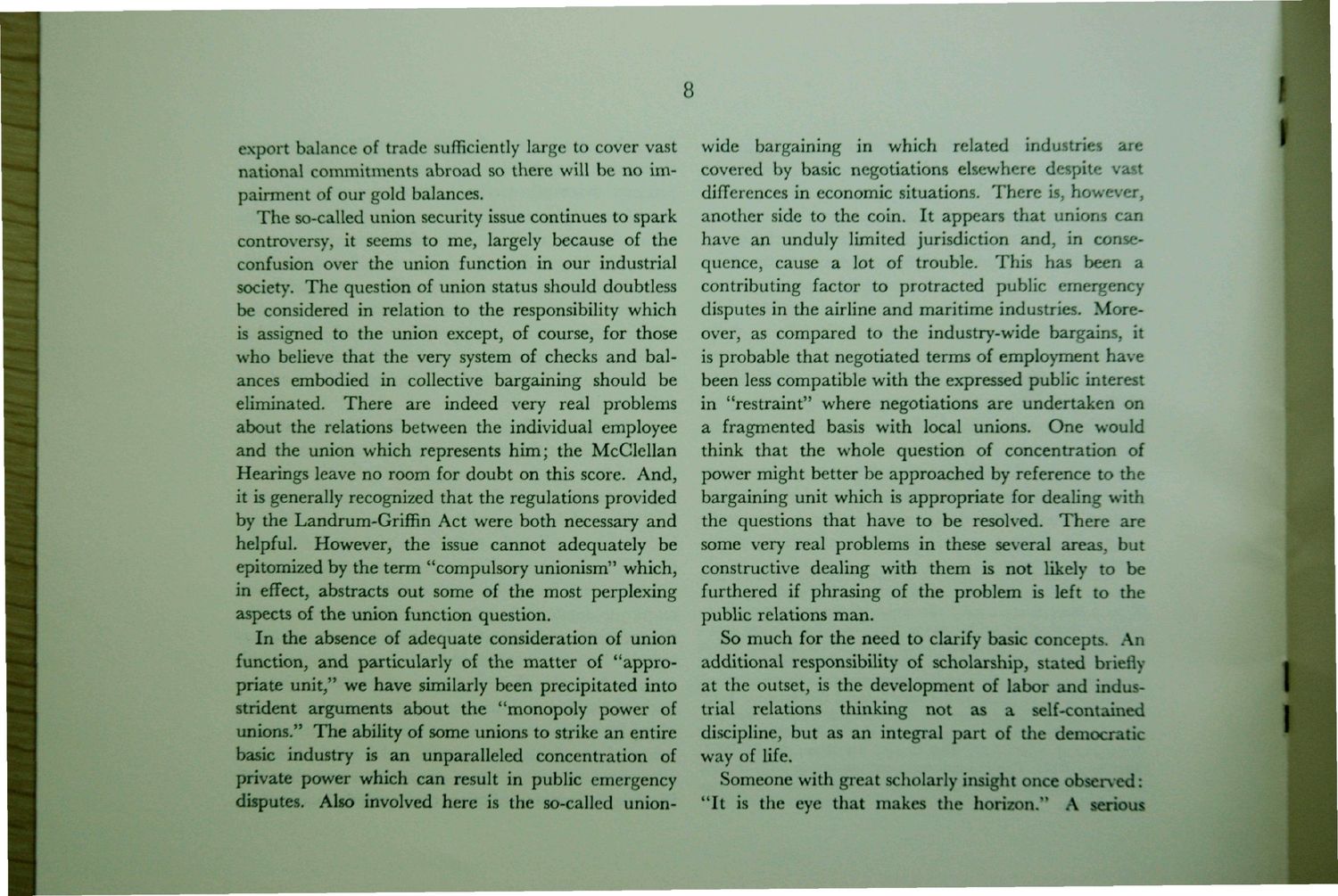| |
| |
Caption: Dedication - Labor and Industrial Relations
This is a reduced-resolution page image for fast online browsing.

EXTRACTED TEXT FROM PAGE:
8 export balance of trade sufficiently large to cover vast national commitments abroad so there will be no impairment of our gold balances. The so-called union security issue continues to spark controversy, it seems to me, largely because of the confusion over the union function in our industrial society. The question of union status should doubtless be considered in relation to the responsibility which is assigned to the union except, of course, for those who believe that the very system of checks and balances embodied in collective bargaining should be eliminated. There are indeed very real problems about the relations between the individual employee and the union which represents him; the McCIellan Hearings leave no room for doubt on this score. And, it is generally recognized that the regulations provided by the Landrum-Griffin Act were both necessary and helpful. However, the issue cannot adequately be epitomized by the term "compulsory unionism" which, in effect, abstracts out some of the most perplexing aspects of the union function question. In the absence of adequate consideration of union function, and particularly of the matter of "appropriate unit," we have similarly been precipitated into strident arguments about the "monopoly power of unions." The ability of some unions to strike an entire basic industry is an unparalleled concentration of private power which can result in public emergency disputes. Also involved here is the so-called unionwide bargaining in which related industries are covered by basic negotiations elsewhere despite vast differences in economic situations. There is, however, another side to the coin. It appears that unions can have an unduly limited jurisdiction and, in consequence, cause a lot of trouble. This has been a contributing factor to protracted public emergency disputes in the airline and maritime industries. Moreover, as compared to the industry-wide bargains, it is probable that negotiated terms of employment have been less compatible with the expressed public interest in "restraint" where negotiations are undertaken on a fragmented basis with local unions. One would think that the whole question of concentration of power might better be approached by reference to the bargaining unit which is appropriate for dealing with the questions that have to be resolved. There are some very real problems in these several areas, but constructive dealing with them is not likely to be furthered if phrasing of the problem is left to the public relations man. So much for the need to clarify basic concepts. An additional responsibility of scholarship, stated briefly at the outset, is the development of labor and industrial relations thinking not as a self-contained discipline, but as an integral part of the democratic way of life. Someone with great scholarly insight once observed: "It is the eye that makes the horizon." A serious
| |